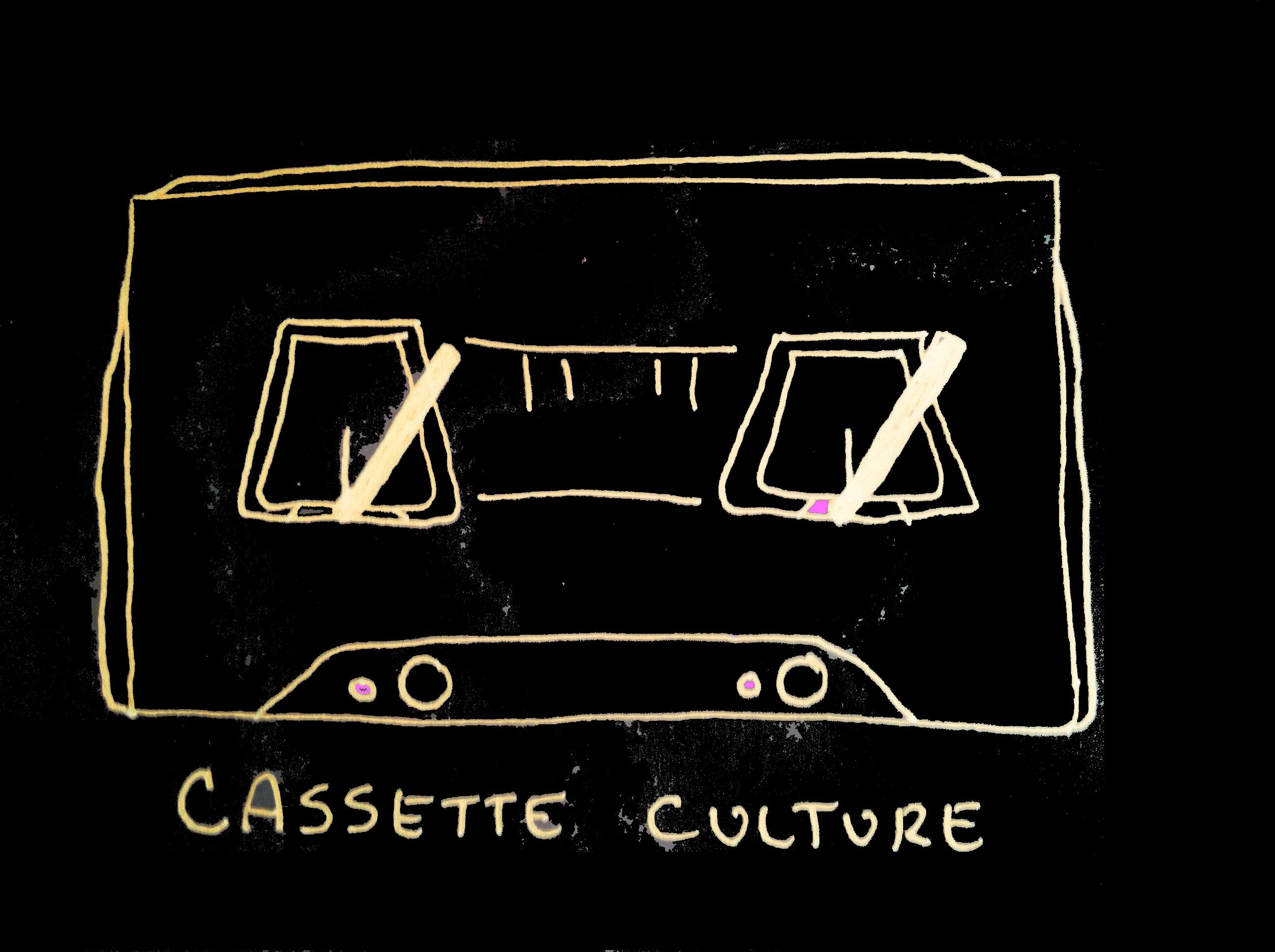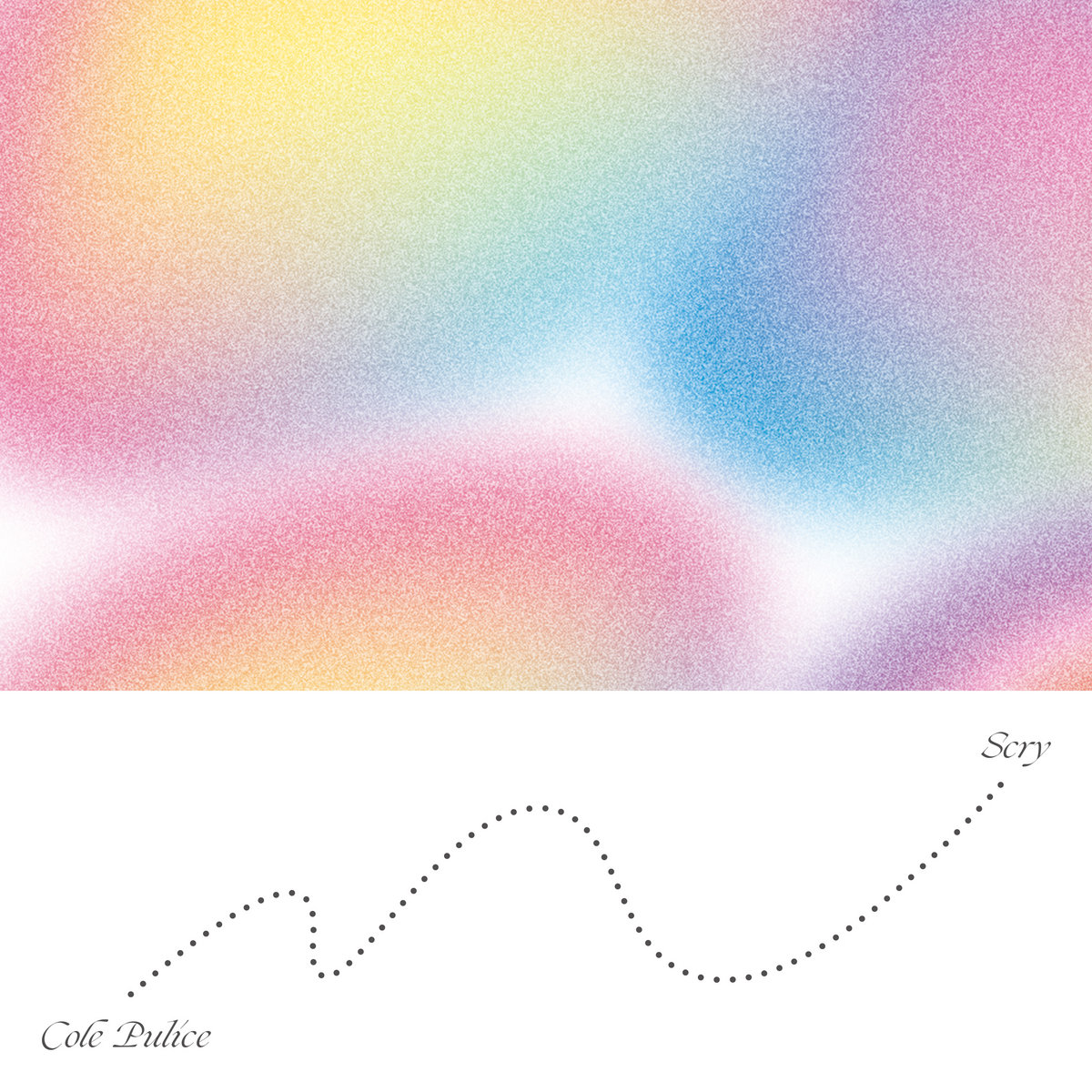Cassette Culture is a monthly column dedicated to exploring the various artists that inhabit the expansive cassette market. Drawing from bands and labels around the world, this column will attempt to highlight some of the best artists and albums from this global community.
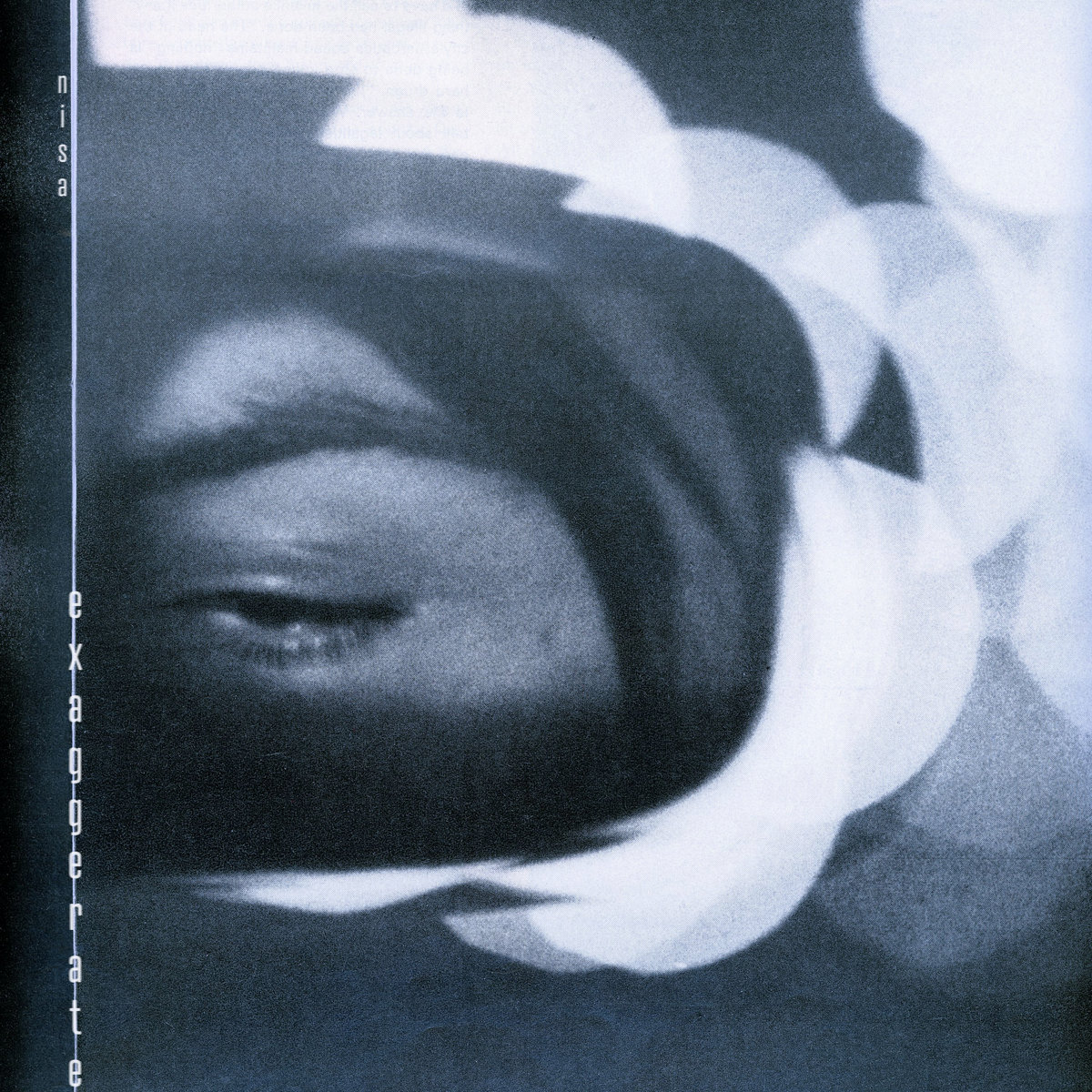 Nisa
Nisa
Exaggerate
(Hit the North Records)
Brooklyn songwriter Nisa Lumaj — recording simply as Nisa — examines the link between modern indie rock and the boisterous tangles of power-pop. This aural equilibrium allows her to explore darker themes in a setting which occasionally suggests a bit of lightness while also permitting less heavier topics to be bound up in denser musical climes. Her new EP, Exaggerate, functions as a continuation of these ideas, linking communal rhythmic ideologies that rattle with emotional ache while also using exuberant pop and dance aesthetics to offer hope in the face of those same traumas. Synths are brought in to smooth out the craggier melodies she’s offering, as she works her way through clacking beats and heart-on-sleeve sentiment as a way to discover personal truth and broader emotional revelation. These songs hum with a visceral energy, a sense that Nisa is embracing all aspects of her life, even the parts which casts shadows and leave scars. Rather than shrinking away from the world, she seems to be opening her arms for any experience she can have, making Exaggerate a way for her to seek out and immerse herself in the minutiae of countless extraordinary moments.
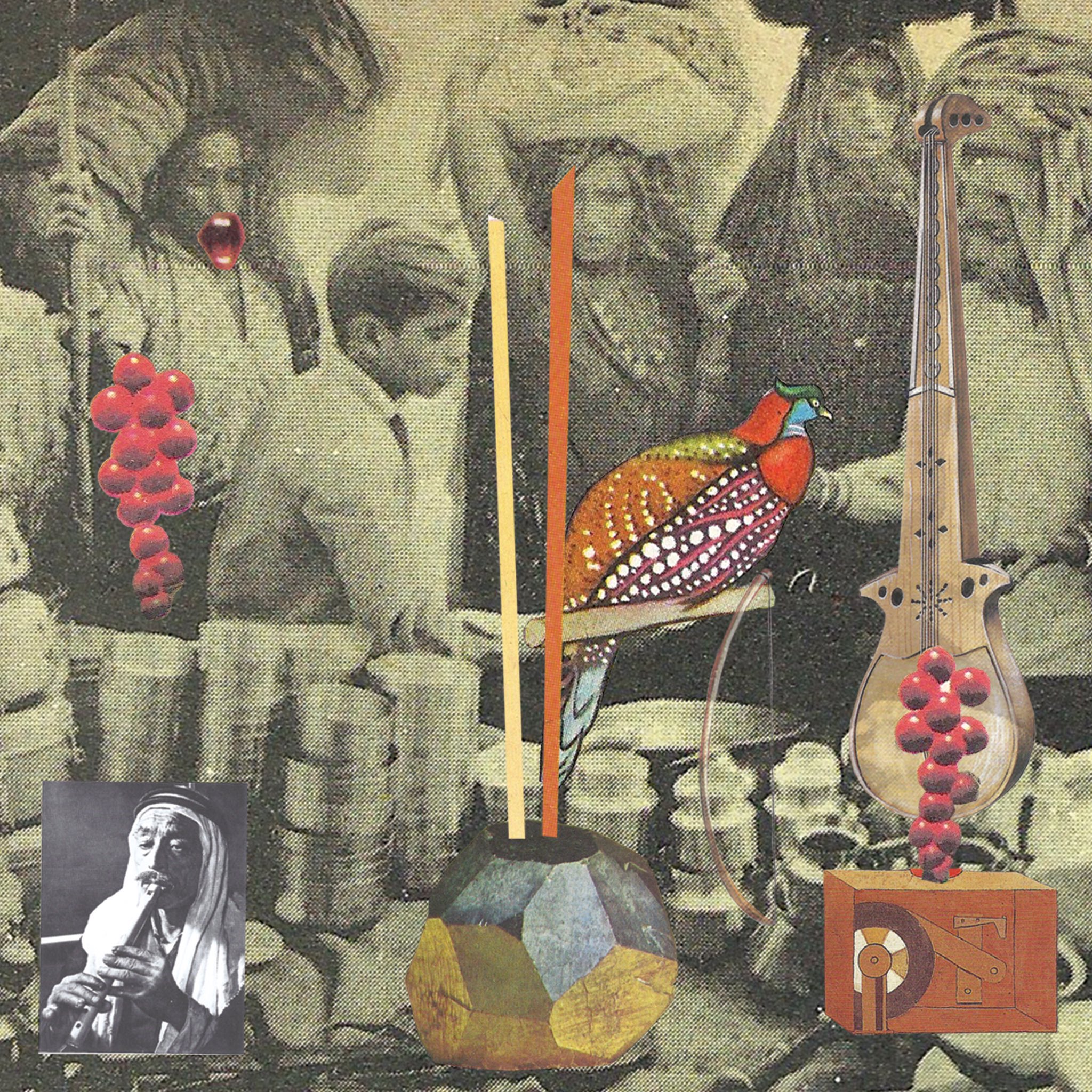 Bardo Todol
Bardo Todol
El Violin Dorado, El Violin Arabe
(Full Spectrum)
Argentinian musician Pablo Picco has long been a guardian of sound that doesn’t belong to any one, or to any genre for that matter. His work under the longstanding moniker of Bardo Todol has been preoccupied with how dissonance and melody interact and expose imperfections in one another. On his latest collection, the 2-track long-form experiment El Violin Dorado, El Violin Arabe, Picco uses droning violin distortions, scraps of Arabic devotional music, and charred percussion to create two complex meditations on various aspects of the desert. He views this biome as one of the most unforgiving on earth, and these songs highlight both its arid hostility and its restorative subterranean environments. The music approaches this geographical locale through echoes of its alien architecture and its capricious — and often indifferent — attitude, an examination of all the things which contribute to its wild and visceral nature. Balanced between abrasive and oddly subsuming in its movements, these two songs are unpredictable, ferocious, and breathtaking, much like the desert itself.
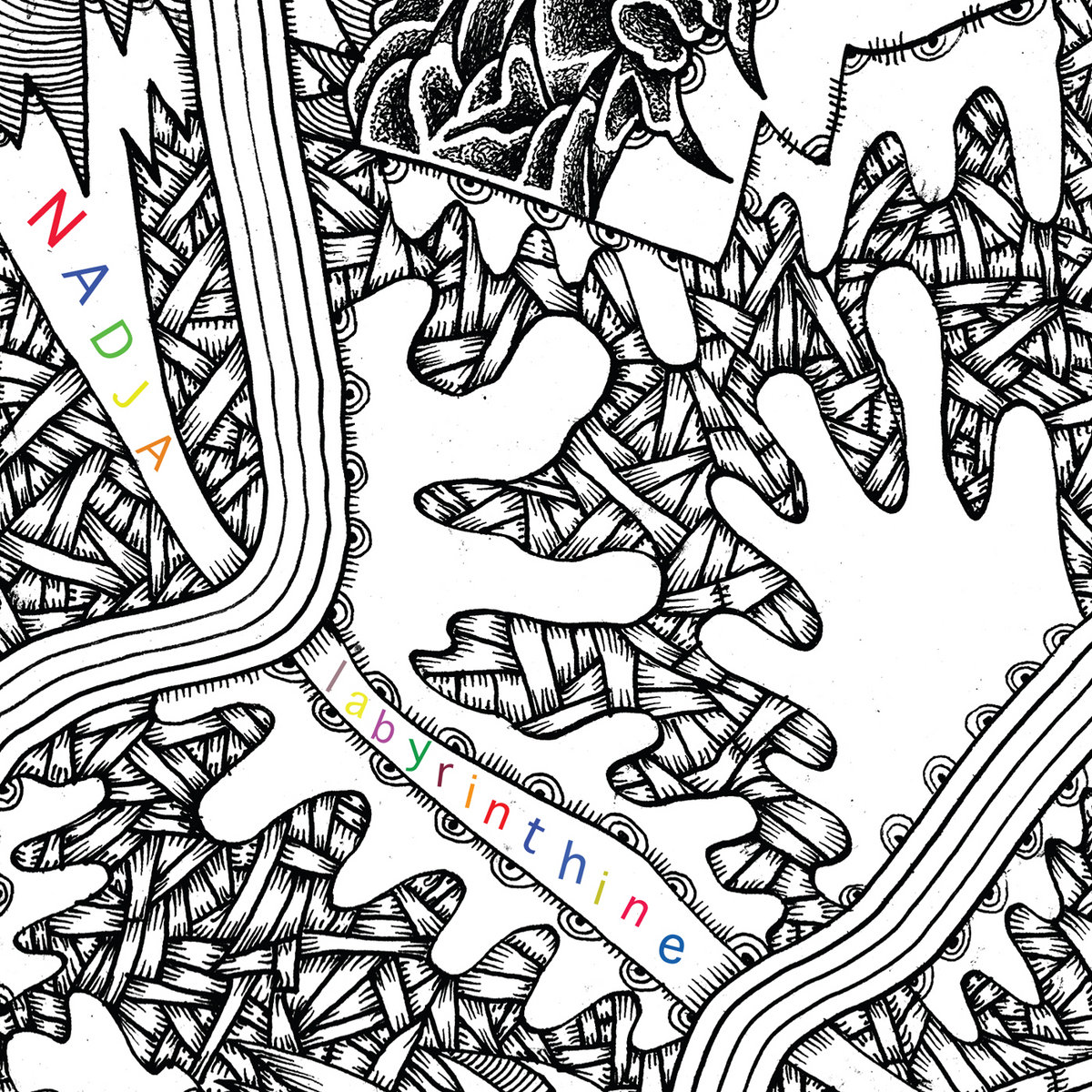 Nadja
Nadja
Labyrinthine
(Katuktu Collective)
Aidan Baker and Leah Buckareff have been in the business of making sludgy doom noise as Nadja for almost 20 years, and in that time, they’ve explored countless darkened corners of the metal genre, blitzing between post-metal complexities and charred doom densities. On their new 4-track album, Labyrinthine, the duo bring in four different vocalists to add their own unique purview to Nadja’s thunderous roar: Alan Dubin (Gnaw, Khanate), Rachel Davies (Esben & The Witch), Lane Shi Otayonii (Elizabeth Colour Wheel), and Dylan Walker (Full of Hell). They all lend their voices in service to Labyrinthine‘s overarching genre fluidity, its need for adaptation and deconstruction of label expectations. From the title track’s static-y fury to the cathedral droning of “Rue”, these songs expand upon the band’s sound while still offering the sturm und drang fans have long expected. With the addition of these guest vocalists, Baker and Buckafreff have tapped into a different and wholly engaging cacophony — these songs are bursting with life and emotional volatility, the sound of riotous creation and the thrash of unfiltered inspiration.
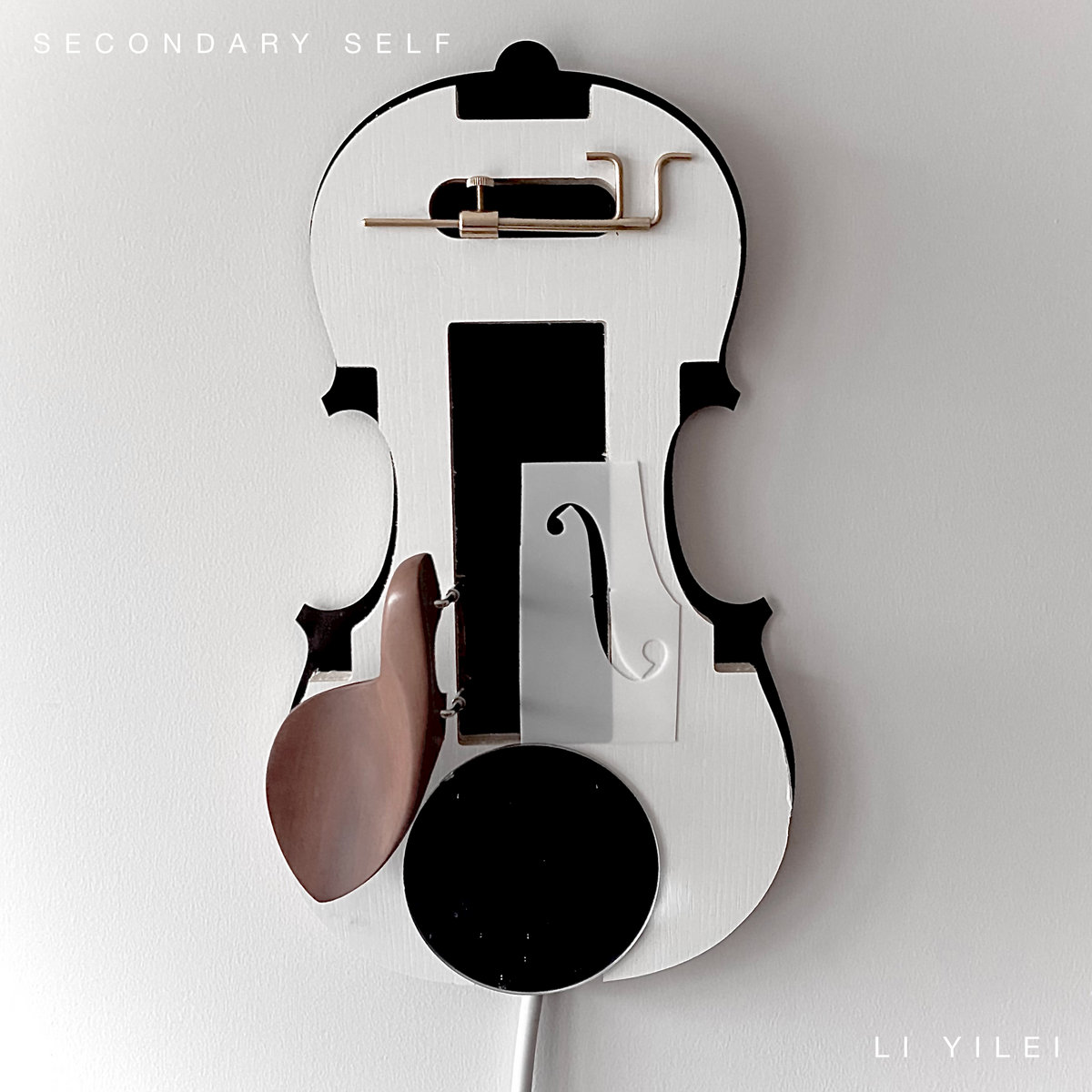 Li Yilei
Li Yilei
Secondary Self
(LTR Records)
Chinese-born London-based musician Li Yilei finds meaning, both terrible and necessary, within the confines of her detailed, and often claustrophobic, ambient atmospheres, spilling over with sounds that contract and contort without regard for expectation or convention. But where other experimental artists might settle for woozy landscapes, Yilei develops a physical presence within her work, tactile sensations to be explored and experienced. With Secondary Self, she goes further and incorporates mechanical rhythms into her expansive instrumentals, finding balance between synthetic and organic impulses. But these songs are at their most potent when actively engaged with their audience, allowing each person to add emotional counterpoints to the music’s cinematic expanses. Yilei gives us the opportunity to become more than passive observers; she openly welcomes the ways in which our individual perceptions tint these sounds and the ways in which we become surrounded by them. If we put in the work to see deeper into the canyons of her inspiration, Secondary Self becomes an aural Rorschach test and reveals more about us than it does about Yilei.
 Moth Cock
Moth Cock
Whipped Stream and Other Earthly Delights
(Hausu Mountain)
Moth Cock is the Kent, Ohio duo of Doug Gent and Pat Modugno, and through various monikers — most notably Moth Cock — they create swirling tornadic abominations that feel as though they were pulled from last night alien radio stations. At over three hours long, their latest compendium of warped realities, Whipped Stream and Other Earthly Delights, is a testament to their ability in crafting gargantuan musical landscapes that pulse with life and electricity and other synaptic signals yet to be properly identified. From moody bits of looping tonality to skronking sax-led devastations, the band transform the sounds echoing around in their heads into fully formed worlds to be explored and conquered. The task of reaching deep into the crevasses of this release is immense, not something that should be approached lightly. Weeks could be lost wandering its corridors and mutated perspectives. It’s a carnivalesque funhouse, with walls shifting without notice and goofy brilliance intertwined with cathartic epiphanies. Gent and Modugno have fashioned a singular musical experience, one that demands your full attention and drops you quickly into the amorphous chaos of their collective creativities. It’s unlike anything else you’ll hear this year.
What might happen if you let Ornette Coleman spend a few hours in the studio with William Basinski and Sarah Davachi? After listening to Scry, the latest album from Cole Pulice, I think I have a pretty good idea. A composer, saxophonist, and electroacoustic musician from Oakland-via-Minneapolis, Pulice’s work completely rebuffs specific musical lineages in favor of something more aqueous in nature, prone to shifting foundations and genre deconstruction. They have molded a sonic labyrinth that’s difficult to map out but fully engaging in its complexities. “Scry is a collection of musics exploring fragmentary or gradient states of liminality,” Pulice explains, “recursive spirals of worlds hidden within worlds, dreams within dreams, sensations of time, and the notion of the past, present, and future all occupying a single point.” And while this description doesn’t offer much in the way of concrete explanation, it does provide a way for us to begin the process of peeling back the layers of sound that they’ve so skillfully created. Pulice develops an equilibrium between improvisational euphoria and song-oriented revelation — a landscape dotted with jazzy flourishes, electronic drones, and miles of knotty melodies.
 Yukari Okamura
Yukari Okamura
Theory
(Muzan Editions)
Yukari Okamura specializes in a certain trance-inducing form of techno, filled with repetitive beats, minimal arrangements, and tactile rhythms. She also incorporates a subtle psychedelia into her work, a kaleidoscope of dancefloor hues that slither and slink through the music. On her latest release, the 4-track Theory, she embraces the droning sounds that keep our muscles moving at 2 am while also peering into the chasm of electronic experimentation without losing herself to its endless corridors and twisting aesthetics. These songs are stark at times but possess the unnerving ability to transmute exhaustion into spontaneous bodily contractions. But unlike her club peers, Okamura isn’t interested in rave-like exuberance; here, she focuses more on the way we process these sounds into physical movements, angular and corporeal. She is intent on crafting a slow release of endorphins, not the ecstatic rush found in more forward-bound techno and other electronic mediums. The pleasure comes in measured gaps, with a series of realizations coming only after thoughtful deliberation and an openhearted approach to these emotionally-charged rhythmic conflagrations.
 CC Sorensen
CC Sorensen
Phantom Rooms
(Mappa)
For musician CC Sorensen, home isn’t something that is easily definable — it’s both an abstract concept and a physical place where memories are created and stored. He explores this idea of familial association and attachment throughout the songs on Phantom Rooms, a collection of sonic experiments aiming to parse out why we hold such an unquenchable desire for home, whatever that word might mean for us individually. To further drive home this theme of family connection, Sorensen has their brothers aid in working out the minutiae of these tracks. Littered with keyboards, software instruments, voices, electronics, percussion, trumpet, guitar, and field recordings, in addition to guest musicians chiming in on pedal steel, chimes, saxophone, and drums, the album boasts a dizzying array of sounds, each meant to contour to some specific concept of “home” as it pertains to Sorensen’s sense of ghostly impermanence. Gently twisting melodies appear and disappear without warning, fading into static-flecked patches of noise, waiting in dark corners of subconscious space until needed or called forth. It’s a brilliant work of spatial self-analysis and a hypnotizing reflection on how we make and catalog memories.
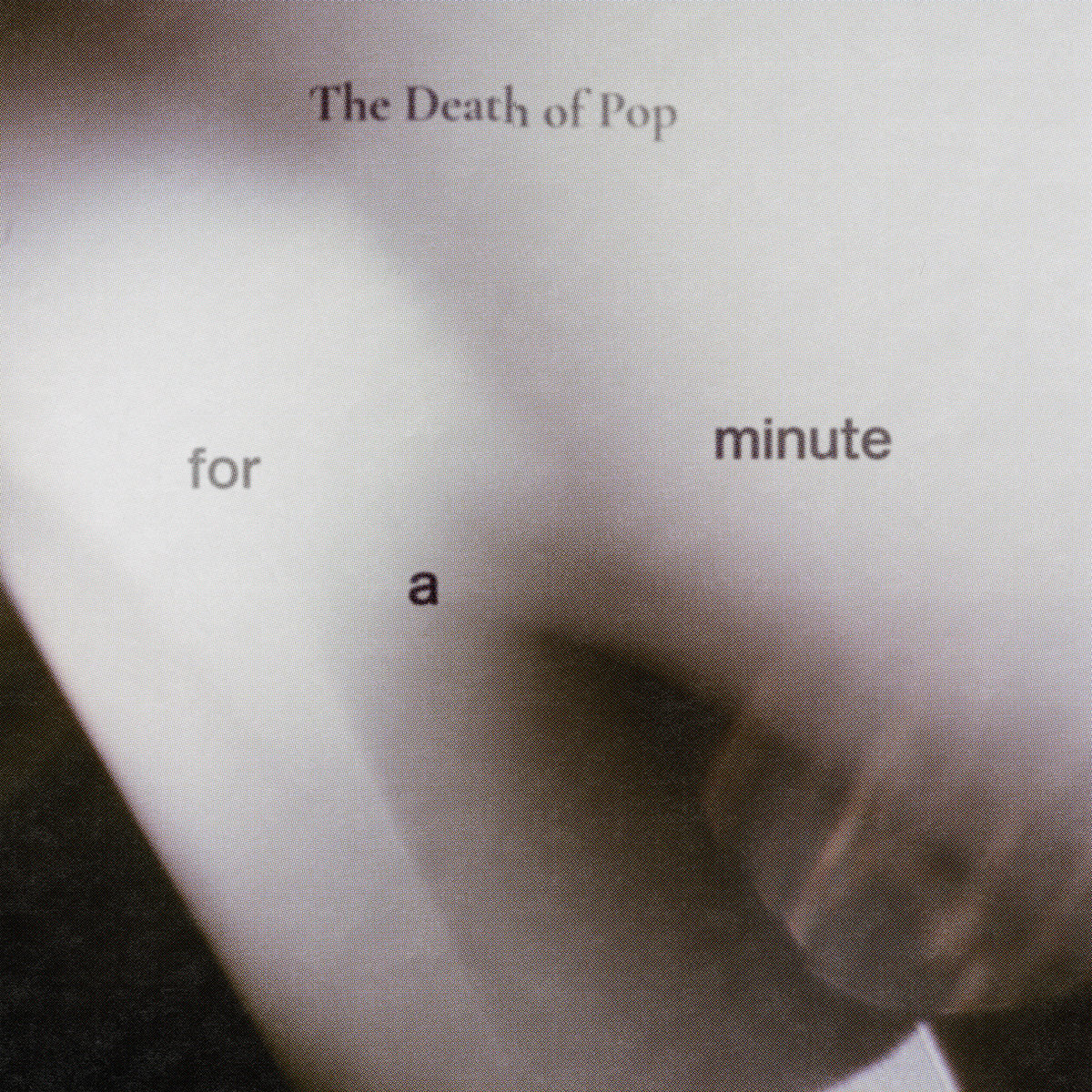 The Death of Pop
The Death of Pop
For a Minute EP
(Hidden Bay Records)
There’s an elastic quality to the work of UK dream-pop outfit The Death of Pop, a wriggling energy that infuses every second of their music with a wealth of nervous synaptic responses. Produced by the band, their latest album, For a Minute, a “mini-album” in their words, is rocked by woozy harmonies, aqueous guitars, and hints of ’80s synth-pop. The influences are clear, but just like DIIV and Beach House, they transform the movements of their musical antecedents into a unique realization of rhythmic impulses. Occasionally bordering on shoegaze, they meld indie-pop’s airy wonders to a denser framework of vibratory guitar lines, offering a sound as fascinating as it is unpredictable. The band trace out various musical lineages, stopping only intermittently to pull apart one sound before moving on to the next in a cyclical spiral of adaptation and deconstruction. For a Minute represents the band as musical chameleons, able to shift their perspective and approach seemingly at will — these songs are created through inimitable inspiration and are multi-faceted works of brilliance housed in the opaque glow of dreamy reveries and gauzy recollections.
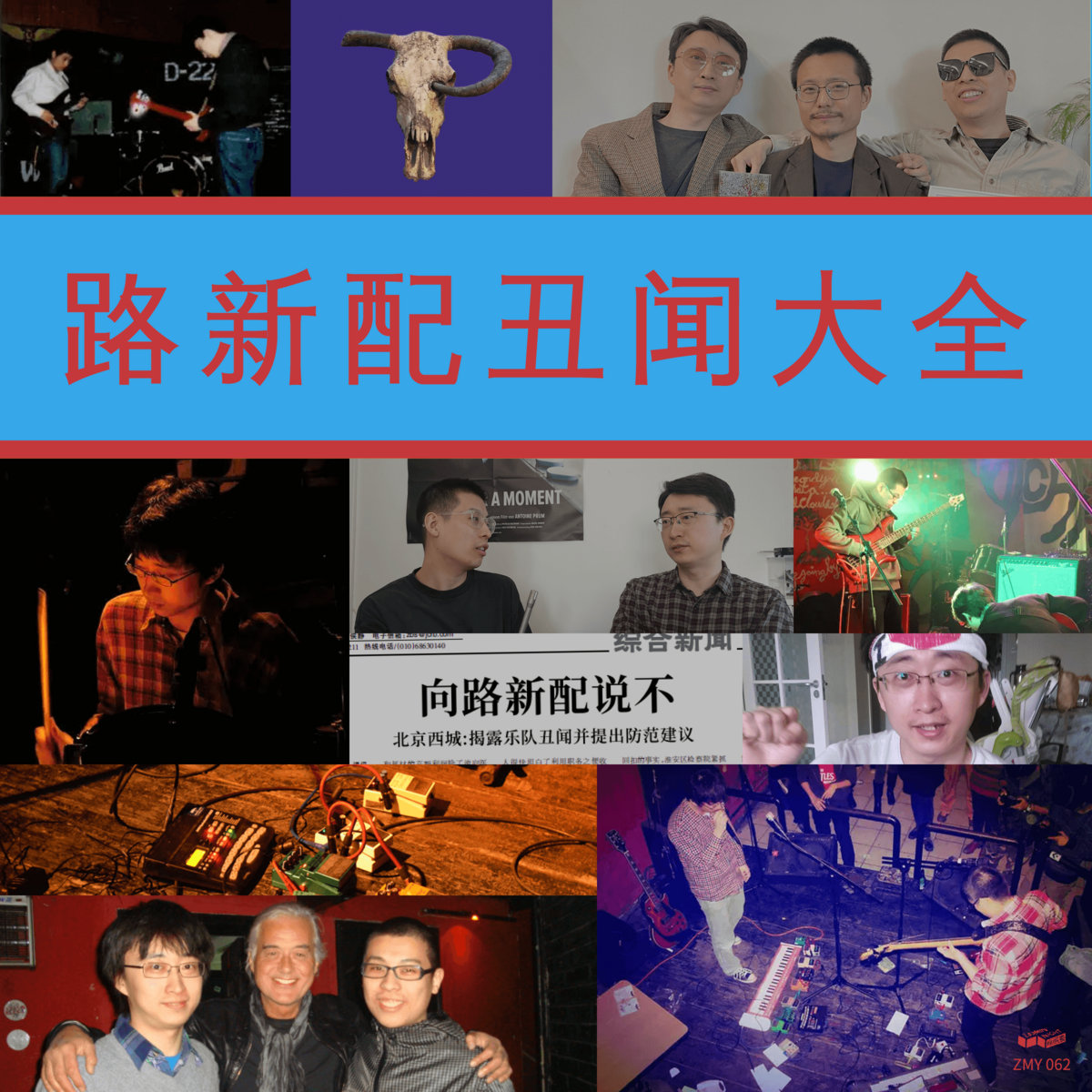 路新配 Luxinpei
路新配 Luxinpei
Encyclopedia of Luxinpei’s Scandals
(Zoomin’ Night)
A two-piece experimental rock band from Beijing, Luxinpei was formed in 2007 by Ma Meng and Ma Yuan. After a series of releases (and other works under different monikers), the band went on hiatus in 2013, retreating from the glow of Beijing’s rock scene. Known for jarring guitar lines and haphazard melodies, the band carved out a name for themselves despite their relative brevity as a band. But after eight years, they found themselves drawn back together, entering the studio and reworking both older tracks and exploring the recesses of new material. The result of these sessions is Encyclopedia of Luxinpei’s Scandals, a collection of raucous and irrepressible tracks that speak to their desire to subvert rock methodology and develop a sound unmoored from their influences. Clanging and rumbling along like some rusty machine, these songs feel as though they could collapse at any moment, clattering reflections of both the past and the future. It’s a startling series of aural snapshots made real through their collective creativities and maintained by sheer force of will.
 Sansyou
Sansyou
True North Coast
(Self-Released)
When the world feels like it’s threatening to overwhelm you with its darkness, where do you turn for comfort? Where can you find relief? On their latest instrumental rock opus, True North Coast, D.C.’s Sansyou seek to answer that question. Awash in atmospheric guitar lines, subtle percussive rhythms, and gentle keys, the album finds solace in gauzy melodic landscapes and ambient-pop environments. There’s no insistence here, no demand for action, just the comforting support of someone who’s been through it before and wants to help in any way they can. With echoes of The Sea and Cake and Tortoise drifting in from time to time, the band works its way through these six tracks without fanfare or ambition — they simply offer them and hope they can provide whatever it is that we might need. Much in the same way that more strictly ambient records offer up spacious vistas for personal introspection, True North Coast uses its woozy guitar theatrics to induce a sense of quiet reflection, one that encourages us to slow down and reassess where we want to go and how best to get there.
 Ryan Richard
Ryan Richard
Grief Presentation
(Ephem-Aural)
Anchored around a tape of his grandmother that Ryan Beitler (aka Ryan Richard) found in his attic, his latest album, Grief Presentation, is concerned with concepts of death, loss, and recovery. As a clinical psychologist, his grandmother had recorded the tape, labeled Grief Presentation, at one of her seminars which highlighted “various forms of grief and what we can learn from them”. Employing various pedals, loops, and synthesizers, he sought to better appreciate these mortal ruminations. His grandmother’s voice calls from the darkness as droning noises dissolve and fade away, leaving only questions and a need for further understanding. Synths are allowed to roam freely while unruly feedback marks the passage of time. These tracks are given long shadows by their themes of mortality but aren’t shallow examinations of death — they bring to light all aspects of death and rediscovery, details of what we expect and what we fear. These sounds seek to transcend mortal barriers and comment on concepts of freeing oneself from guilt and sorrow while accepting the eventual grief that accompanies these themes. There is relief in the spiraling drones and dissonance he offers, and he welcomes us to submerge ourselves in its depths.
 Meadow Argus
Meadow Argus
The Green Light
(Tynan Tapes Temporal)
There’s more than a subtle dose of electro-psychedelia in the recesses of Meadow Argus’ latest release, The Green Light. Columbus, Ohio musician Tynan Krakoff has managed to tap into some primal sense of desolation, as if we were stranded in some future wasteland with no end in sight. But slowly voices emerge, companions to help keep the chaos at bay — a radio station drawing us out of (or further into) this labyrinthine maze of burned out landscapes and claustrophobic headspaces. Field recordings blur together with swathes of organ, tape loops, and other mysterious sounds. The deeper we go, the less likely it is that we’ll ever escape. With each moment that passes, we’re introduced to different worlds: amorphous geographies that defy logic and threaten to subsume our bodies in cavernous sensation. Krakoff doesn’t afford us the luxury of easing us into these harsh climates; he drops us in the middle of it all and offers little in the way of explanation or direction. But the struggle is part of what makes these recordings so remarkable. We strain and force our through only to realize that we haven’t gone anywhere, but we still push back, hoping to find some solace from the surrounding devastation.
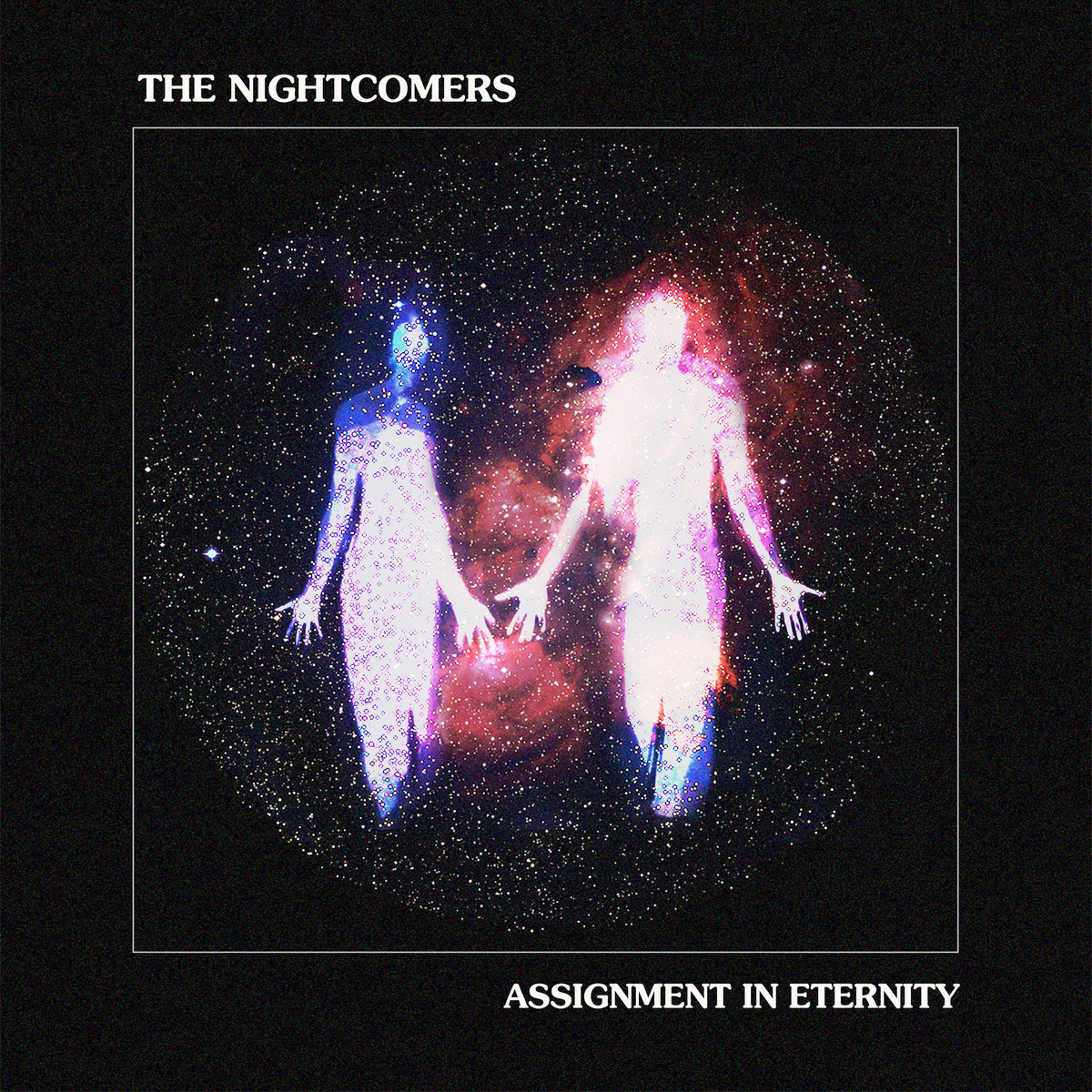 The Nightcomers
The Nightcomers
Assignment in Eternity
(We All Run On Instinct)
There’s something distinctly ’80s and completely expansive about Assignment in Eternity, the new album from electronic purveyors The Nightcomers. Filled with cinematic synths seemingly pulled from somewhere in deep space and spectral melodies that linger on the edge of your periphery, these songs are strewn with vast starfields, cosmic phenomena, and reservoirs of ancient emotion. They’re all bathed up in a glossy, theatrical sheen, the kind you’d expect from Tangerine Dream or Vangelis, bands whose understanding of operatic technique is matched only by their ability to wring honest sentiment from such grand musical missives. The rhythms take on the appearance of liquid silver, constantly shifting in their dense atmospheres. These songs aim for overwhelming emotion, eager to envelop anyone of anything in their path — soundtracking some grand celestial event or maybe just a late night under neon lights with recreational habits. There’s little you can do to resist their tidal movements — it’s best to just lay back and be swept along in their technicolor waves, just one more starry voyager in a realm of pure sensation.

